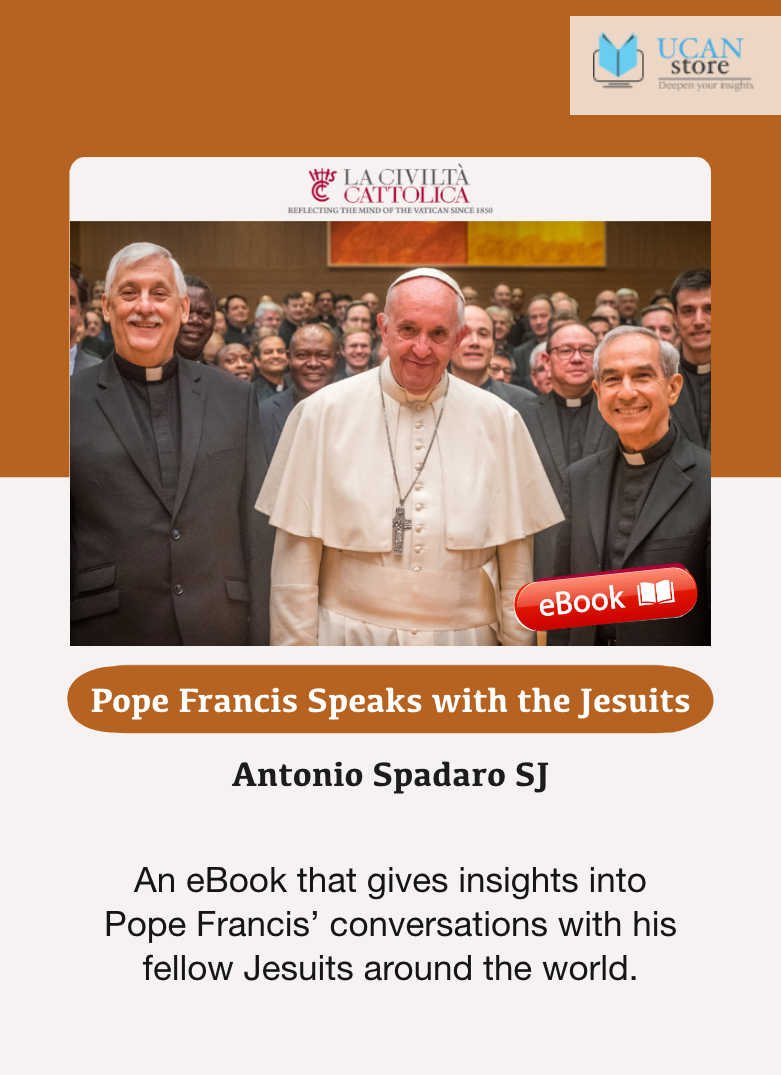

An Iraqi Christian refugee boy sits at his desk during a Catechism class at a Catholic school on the outskirts of Beirut on Nov. 15, 2010. (Photo: AFP)
When I graduated from our parish elementary school, I was awarded a medal for having memorized all the 499 questions and answers in the catechism. I felt ready to head off to high school well-equipped to face any questions that might arise about God, faith, and Catholicism from a predominantly non-Christian student body and faculty. After all, I even had a medal that proved my readiness.
As soon as I got to my new school, however, I received a shock that has shaped my faith and ministry ever since. I had the answers to pages and pages of questions, but no one ever asked them!
I was trained to live as a Catholic Christian in a world that existed only between the covers of my well-thumbed catechism.
Oh, there were, indeed, questions that my schoolmates and studies presented. “Why do you believe?” “What makes you think your religion is better than anyone else’s?” “Why did you Christians put my parents and so many others of my people into concentration camps from which so few emerged?”
The catechism had not prepared me for them.
There were other questions that arose from within me. “How can these great kids be so good, so much better than I, without believing in God?” “How can my friends face life without believing in Jesus?” “Are these friends of mine all damned for not being baptized?” “Is there really anything special about being a Catholic?” “Why do I believe?” “What about Adam and Eve?” “Is going to church and all the rest just my family’s custom?”
"Answers that worked at some points in my life failed to work in others as I and the world changed"
As I matured and as I learned more about science, history, society, psychology, literature, Scripture, theology and other tools that help us grasp reality, yet more questions arose. And they continue to do so.
Over the years, I learned or figured out answers to some questions. I also learned or figured out that some questions have no answers, and that some questions are nonsensical. Answers that worked at some points in my life failed to work in others as I and the world changed. And some answers are nonsensical.
The catechism I learned and so much of what the Church puts forward as its teaching does not answer or even recognize the questions that the world actually faces and for which men and women struggle to find answers and discover how they might come to recognize Jesus as the Answer.
Too often those who speak for the Church officially or otherwise decide ahead of time what the questions are and then emit ready-made answers. It is like my old catechism that decided on the answers and then presented questions tailor-made to fit those answers. Those answers were not necessarily incorrect, but they answered questions no one asked while missing, skirting or ignoring real questions.
But those real questions were and are God-given opportunities to witness to the Gospel, the Good News, as the deepest response to the bad news in the lives of people and the world.
Sometimes the problem is that people are unwilling to face ambiguity and expect answers before there has been any opportunity to probe the question and develop a response. Journalists frequently do that, cornering prelates or curia offices to respond, for instance, to some just-that-morning-announced event, discovery or scientific development. Even parish priests face the same expectation of instant answers at the church door after Mass.
"Old answers instead of new research and thinking will not suffice and will ultimately turn thoughtful people away"
Unfortunately, the sort of honest humility that can say, “I don’t know,” or “We don’t know enough yet,” is rare, as is questioners’ patience to wait.
We don’t have all the answers and should not act as if we do. We don’t even have all the questions and must not act as if we have answers for new questions. Nor must we make believe that old good answers are automatically good answers to new questions.
This is especially the case with science and technology. New questions are often provoked by new knowledge. Old answers instead of new research and thinking will not suffice and will ultimately turn thoughtful people away.
A case in point where up-to-date study would give ecclesiastical pronouncements a better hearing is the whole field of reproductive technology (e.g., in-vitro fertilization, birth control). Church pronouncements in that area might receive a better hearing if people were confident that they were based on thoughtful current research rather than ancient science.
Respectful reference to modern social sciences would give insights into the sources of the questions we encounter. Honest study of history will contextualize old answers and help us see if and how they can be brought into dialogue with modern concerns.
In short, the Church must learn to hear and heed the real questions of the world today if we would properly proclaim Jesus as the Way, the Truth, and the Life.
*The views expressed in this article are those of the author and do not necessarily reflect the official editorial position of UCA News.


